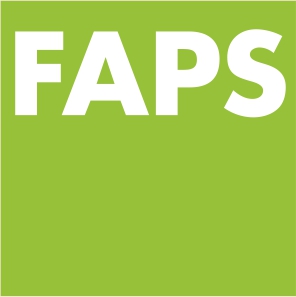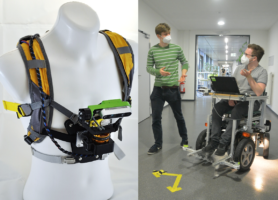Motivation
The navigation of people in everyday situations is a challenging problem. In particular, busy environments with many other people present navigation systems with challenges in terms of localisation and path planning.
If an assistance system takes over the navigation for a person, the adherence to social norms is crucial for the person concerned in terms of how they are perceived by other people (for example, the proximity to strangers). Therefore, socially accepted navigation is of particular importance at this point.
In the LOMOBI research project, an interactive assistance system for the navigation of visually impaired persons is being developed to support orientation and mobility in large parts of everyday life. Furthermore, socially accepted navigation is also of great importance for the development of intelligent wheelchairs, other assistance systems or mobile robots.
Objective
The aim of this thesis is to familiarise the reader with the current state of the art on the topic of social navigation. Based on the results, a first path planner will be developed that takes social norms into account. The Robot Operating System (ROS) is used for implementation. This provides a variety of algorithms and technologies of mobile robotics that can be used.
Notes / requirements
Basic knowledge or the motivation to familiarise oneself with the programming of robotic systems should be available. The software module is to be implemented in ROS, so prior knowledge of C++ or Python and ROS is advantageous, but not necessarily required. The scope and objectives are adaptable according to prior knowledge.
The FAPS offers a wide range of opportunities to try out medical technology and robotics. Students get the opportunity to work with a wide variety of hardware. The working method is flexible and a student environment is provided.
If you have any further questions, please contact us by email or in person.

